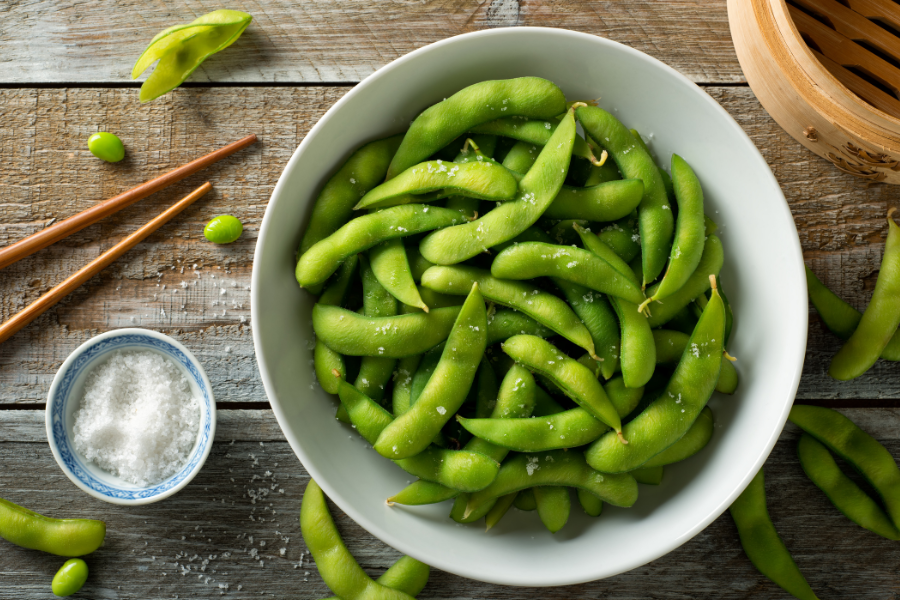If you’ve been wondering whether dogs can eat soy, you’re not alone. Soy often sparks heated debates in both human and canine circles (well, at least among the humans). From soy sauce to soybeans, soy is everywhere—and as pet parents try to make more informed choices about their dogs’ diets, it’s natural to question this popular ingredient.
Spoiler alert: The answer is not a simple yes or no. Whether soy is safe or beneficial for your dog largely depends on how it’s prepared, your dog’s unique health needs, and what the rest of their diet looks like. But don’t worry, we’re breaking it all down for you.
Pour yourself a cup of coffee (or soy latte) and settle in—because we’re about to chew over everything you need to know about soy for dogs, from benefits to risks, and which types of soy might just make the cut for Fido’s bowl.
What Is Soy and Why Is It Everywhere?
Soy comes from soybeans, which are mighty little legumes packed with protein. Thanks to this, soy has become a dietary staple for humans around the world, showing up in everything from tofu and edamame to soy sauce and plant-based burgers.
For dogs, soy tends to slip into their diets via processed dog food, meat alternatives, or as a sneaky ingredient in certain treats. Its high protein content and affordability have earned it a place in both human and canine food industries, but its reputation can spark some serious debates.
Is Soy Safe for Dogs to Eat?
The short answer? Yes, in most cases, soy is safe for dogs to eat. But, like all things pet-related, there’s some nuance to the discussion.
Soy isn’t toxic to dogs, and many pups can happily gobble up soy-based proteins without any issues. However, it’s not one size fits all, and there are a few factors to consider before sprinkling soy into your dog’s kibble.
Benefits of Soy for Dogs
When prepared properly, soy does come with some perks that can benefit dogs under the right circumstances.
High-Quality Protein
Soy is a complete protein, meaning it contains all nine essential amino acids. For dogs with food allergies or sensitivities to more common protein sources, like chicken or beef, soy can be a fantastic alternative.
Affordable and Accessible
Soy is an inexpensive source of protein, making it a common ingredient in commercial dog food. Plus, it’s readily available—a bonus for pet parents looking to add extra variety to their dog’s diet.
Low in Saturated Fat
Unlike some animal proteins, soy is naturally low in saturated fats, which may help dogs manage weight more effectively.
Plant-Based Benefits
For pet parents who prefer plant-based diets for their pets, soy stands out as a powerhouse alternative to animal proteins. It’s especially useful in vegan or vegetarian dog food formulations.
Risks of Feeding Soy to Dogs
For all its benefits, soy does come with a few potential downsides.
Allergies
Just like with any food, dogs can develop allergies to soy. Common symptoms include itching, ear infections, and gastrointestinal upset. If you notice any of these after introducing soy into your pup’s diet, consult your vet immediately.
Digestive Issues
Soy can be difficult for some dogs to digest, leading to gas, bloating, or tummy troubles. No one wants to deal with that—especially not your dog.
Thyroid Problems
Soy contains compounds called goitrogens, which can interfere with thyroid function in some dogs. While this is typically only an issue when soy is consumed in large amounts, it’s something to keep in mind for dogs with thyroid conditions.
Processed Ingredients
Not all soy is created equal. Highly processed soy additives or fillers (often found in lower-quality dog foods) lack nutritional value and can potentially cause harm.
What Types of Soy Are Safe for Dogs?
Not all soy products are a no-go for your furry friend. Here are a few types of soy you may encounter and whether they’re safe for dogs.
1. Edamame
Yes, dogs can eat plain edamame! These green soybeans are packed with protein, fiber, and essential nutrients. Make sure they’re plain (no salt, pepper, or butter), cooked, and served in moderation.
2. Tofu
Tofu is generally safe for dogs, as long as it’s plain and unseasoned. It’s a solid plant-based protein option, though it lacks certain amino acids that animal proteins provide.
3. Soy Milk
Soy milk isn’t toxic to dogs, but it’s not exactly a health food for them either. Most dogs don’t need any milk in their diet, and soy milk often contains added sugars and flavors that aren’t great for your pooch.
4. Soy Sauce
Hard no on this one. Soy sauce is high in sodium, which can be harmful or even toxic to dogs.
5. Soy-Based Dog Foods
Soy is a popular ingredient in some commercial dog foods. If your dog tolerates soy well and the food is nutritionally balanced, there’s no reason to avoid it. Just make sure you’re choosing high-quality brands without unnecessary additives.
How to Safely Introduce Soy to Your Dog’s Diet
Thinking of adding soy to your dog’s menu? Here’s how to do it safely and responsibly.
Check with Your Vet
Before introducing soy (or any new food) into your dog’s diet, consult with your veterinarian. They can help you determine if soy is a good fit for your pup’s dietary needs.
Start Small
Introduce soy gradually, starting with a tiny amount to see how your dog reacts. Keep an eye out for any signs of digestive upset, allergies, or intolerance.
Choose Whole Soy Foods
Whenever possible, opt for minimally processed soy products like edamame or plain tofu. Avoid heavily processed soy fillers or foods with additives.
Don’t Overdo It
Moderation is key! A little soy can be a great addition to your dog’s diet, but too much can lead to an upset stomach or other health issues.
When to Avoid Soy for Dogs
There are certain situations where you should steer clear of soy altogether.
Existing Allergies
If your dog has a known allergy to soy, skip it entirely. No exceptions.
Sensitive Digestion
Dogs with a history of digestive issues might struggle with soy. It’s important to monitor their response closely if you do decide to introduce it.
Medical Conditions
Dogs with thyroid problems or other health conditions that could be aggravated by soy should avoid it. This is another reason to always consult your vet first.
Final Woof (or Thoughts)
Soy isn’t the canine superfood that’ll revolutionize your dog’s diet—but it’s not a villain either. For many dogs, soy can be a safe and healthy source of protein, especially as a plant-based alternative. The key is to serve it responsibly, pay attention to your dog’s individual needs, and always consult your vet if you’re unsure.
When it comes to soy, a little goes a long way—just like belly rubs and those irresistible peanut butter treats.
FAQs About Feeding Soy to Dogs
1. Is soy safe for all dogs?
Most dogs can safely enjoy soy in moderation, but some pups may have allergies or sensitivities. Always introduce new foods gradually and watch for any signs of discomfort like itching, digestive upset, or changes in behavior. If you're unsure, check with your vet first!
2. How much soy can I give my dog?
It depends on your dog's size, age, and dietary needs. Soy should be treated as a supplement or occasional treat, not a main meal ingredient. Start with a small amount and monitor your dog's response.
3. Can soy replace meat protein in my dog’s diet?
Soy can be a good source of plant-based protein, but it shouldn't fully replace high-quality animal proteins unless directed by your vet. Dogs are omnivores, so a balanced diet is key to meeting all their nutritional requirements.
4. My dog doesn’t like soy—what should I do?
No worries! Every dog has their own taste preferences. If soy isn’t a hit with your pup, there are plenty of other healthy treats and protein sources to explore.
5. Is soy oil toxic to dogs?
No, soy oil is not inherently toxic to dogs, but moderation is absolutely key!
References
1) Kim HS, Titgemeyer EC, Curles E, Olsen LM, Aldrich CG. Evaluation of Soybean Ingredients in Pet Foods Applications: Systematic Review. Animals (Basel). 2023 Dec 19;14(1):16. doi: 10.3390/ani14010016. PMID: 38200747; PMCID: PMC10778487.



